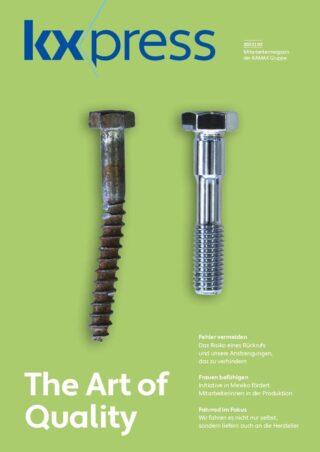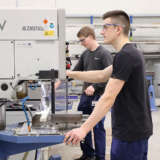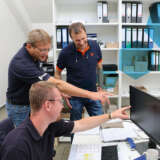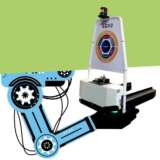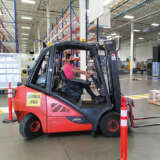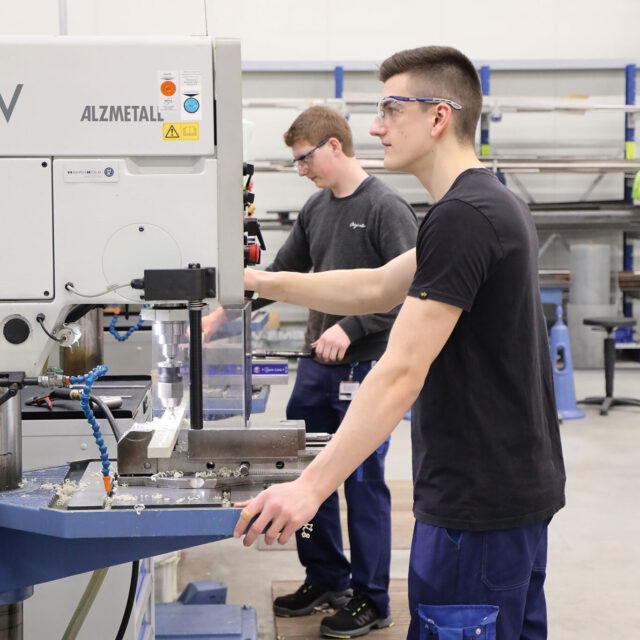
People make
quality work
Competition for the best talent is in full swing at KAMAX sites throughout the world. At the same time, it is important that employees receive regular training for our specialized work in production as well as for new tasks. A journey through the education and training concepts of the Homberg, Museros, Wujin, Bardejov sites – a journey that shows how similar things are.
“It is quite clear to us that there is a shortage of skilled workers,” says Corinne Coprian, team leader for training and development in Germany. This starts with apprenticeships: “We’d like to offer apprenticeships as Electronic technicians for automation technology or materials testers, for example, but we’re not getting many applications here at the moment.” Throughout Germany, there are a declining number of young people choosing such professions. Yet the opportunities at the headquarters in Homberg, with its modern training and development center, are actually excellent. In addition, the company has full-time trainers in its own training workshop: “That’s an absolute quality factor; we don’t just do apprenticeships on the side.”
“It is quite clear to us that there is a shortage of skilled workers”
Corinne Coprian, team leader for training and development in Germany
Clear rules in Germany
Vocational training in Germany is largely carried out within the scope of a dual system. This means that an apprentice acquires the necessary skills and knowledge over several years over the course of training operation on the one hand and in vocational school on the other. The two training providers work closely together in this process – with the aim of optimally preparing young people for their future careers. The whole process is monitored by the Chamber of Industry and Commerce (IHK). “The specifications of the IHK give us a clear framework; we can’t just do whatever we want,” explains Corinne Coprian.
“Apprenticeships in the areas of IT, mechatronics and machining mechanics are particularly important for us,” says the team leader. Together with the nearby Technical University of Central Hesse, KAMAX is even working on a course of study in software technology. This, in turn, could provide a new source of skilled workers into the company.
1,000 hours of training in Museros
Dual training is also available at Museros in Spain. An important quality factor, as Technology Director José “Pepe” Puchau notes. Students there learn simultaneously at KAMAX during their last two years in regular school. “We have a very distinctive timetable for groups of three, who alternate between practical and theoretical training at different locations in the company. Dual training at our company involves more than 1,000 hours of training over two years,” says Puchau. “The aim of this type of training is to prepare the new colleagues for their permanent employment so that they start their future careers with the best possible qualifications.“
His motto: Always find the best way to do things. And share those ways with others. “Creating a chain of improvement that never ends,” he says. In addition to the dual training of students, “you have to create an environment of teamwork and a special motivation, always with the goal of learning a little more every day.”
Puchau conducts its own training courses for machine operators: For example, on the press, on the threading machines, in the tooling department and for quality personnel. These training sessions are repeated every year, usually in October and November of the year. Topics include punching, problems with tapping, and quick alignment of tapping dies. “Each department struggles with different challenges and the training must be tailored to the needs of the personnel,” emphasizes the experienced engineer.

José “Pepe” Puchau coaching employees in Museros (Spain)
China: focus on internal training
In China, simultaneous training at school and in the company is not common. In Wujin and Jintan, there is a strong focus on internal training and continuing education. “We have training for new employees who are hired within three to six months and for colleagues who are already established in the company,” says Shiqin Zhu from the Human Resources department. There is a detailed onboarding plan for each employee to help them quickly find their way around the company, as well as position-specific training on the relevant work processes.
For normal employee training, training needs are determined on the basis of system requirements and so-called talent reviews in accordance with the KAMAX standard. Annual training plans are drawn up on this basis. These processes are established at all sites. “We also offer collective, monthly training and courses with general topics such as DI tools, Office Excel, English training, and subject-related training on finance, production processes, and the very important topic of quality.” Because at the end of the day, it is the human factor that decides the quality of our company and our products – and that can only be achieved with appropriate education and training concepts.
Vacation jobs as a way to attract employees in Bardejov
The training concept in Slovakia is similar to that in Germany and Spain. Students from the vocational school in Bardejov complete a school internship at KAMAX Tools for 2-3 days per week in the third and fourth year. Under the supervision of our experienced employees, they gain experience directly on the machines in production. “We have also joined the dual training system, where students can also receive a scholarship,” says Katarína Horváthová, the human resources manager for Tools in Bardejov. “We also offer part-time jobs for young students during school vacations so they can gain additional on-the-job experience.” Another goal: to present KAMAX as a good employer and try to motivate students to start their career with us.
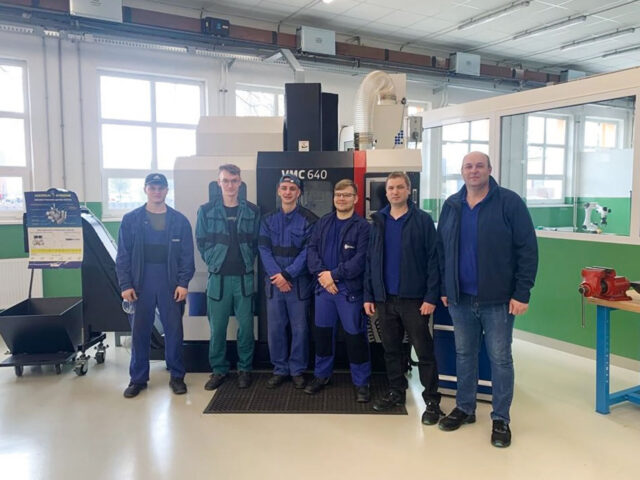
Tools talents with their master Ján Židišin in Bardejov (Slovakia)
EU subsidies for Czech training
Comparable practices also exist in the neighboring country. At our site in the Czech Republic, we place a high priority on training production employees to become managers. Since 2020, an internal academy has been in place in Turnov to train new shift managers. Every new shift supervisor undergoes a series of training courses to obtain all the information and skills they need to perform their new role.
“This program covers labor law as well as HR procedures, job interviews and management interviews,” explains Barbora Koukalová. In addition, the company tries to take advantage of subsidies offered by the European Union and the Czech Republic for the further training of its employees. “We apply for such subsidies regularly, and if we meet certain conditions, we receive funding. We use this extra money mainly for technical courses, but also for soft skills, language courses and IT courses.”
KXpress
